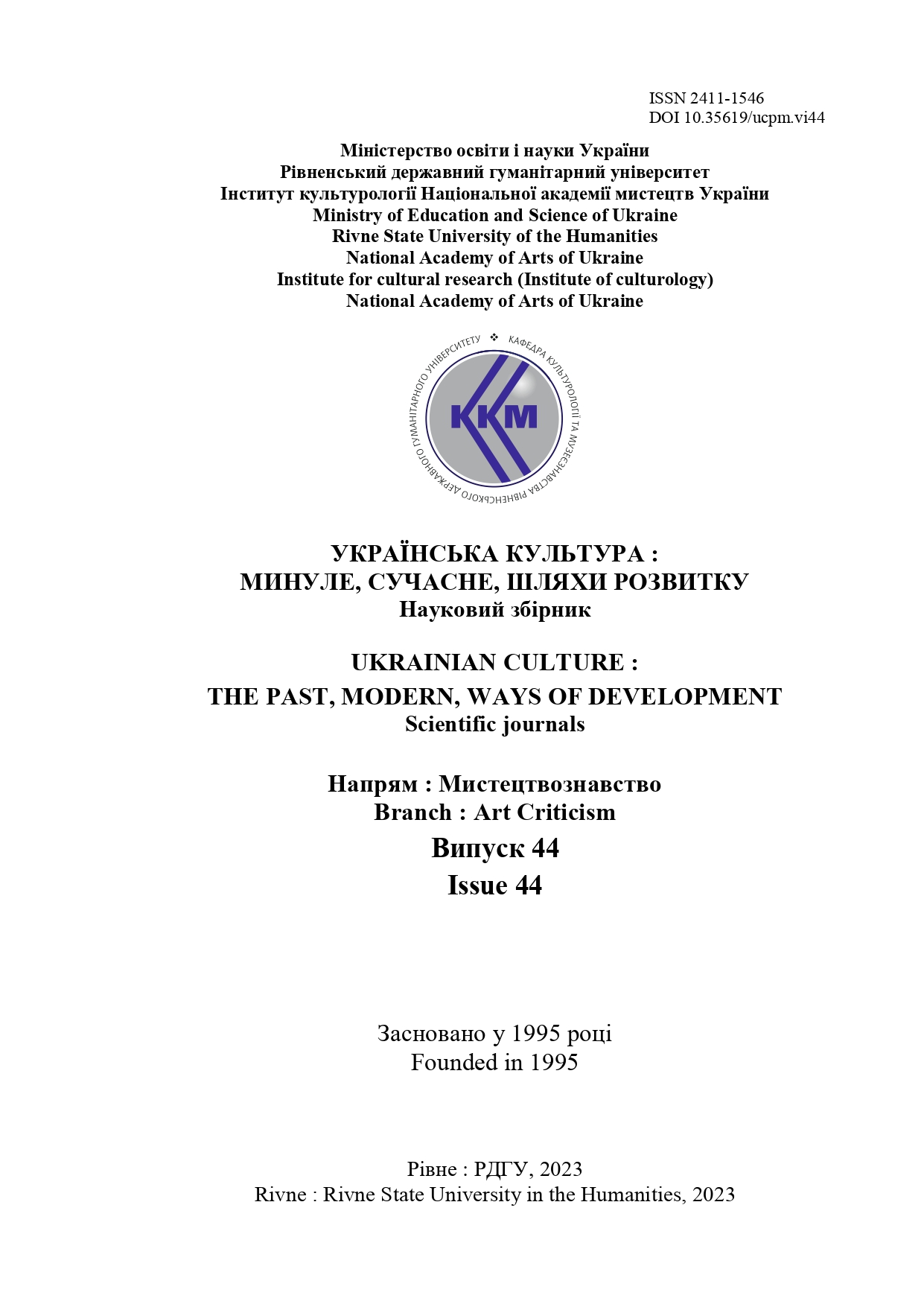«THE PURITANS» BY V. BELLINI IN THE RIVER OF GENRE-STYLE SYNTHESIS OF ROMANTIC MUSICAL DRAMA
Abstract
The purpose of the work is to reveal the poetic and intonational specificity of V. Bellini's «Puritan» in the context of the evolutionary paths of the Italian musical theater of the first half of the 19 th century and its genre synthetic nature.
The methodological basis of the work is the intonation concept of music from the perspective of intonation-stylistic, etymological analysis, as well as interdisciplinary and historical-cultural approaches. The latter allow us to reveal the genre, spiritual, semantic and stylistic specificity of V. Bellini's «Puritan» in the context of the aesthetic guidelines of the Italian musical theater of the first half of the 19th century. The scientific novelty is determined by its analytical perspective, which takes into account not only the genre-stylistic specificity of V. Bellini's operatic heritage, which was also manifested in the opera «The Puritans», but also the peculiarities of genre synthesis in the Italian opera of the first half of the 19 th century. Conclusions. «The Puritans» by V. Bellini is a vivid example of the genre searches of the Italian musical theater of the first half of the 19 th century, aimed at the genre-stylistic synthesis of the traditions of the European musical theater of the New Age. The analyzed opera by V. Bellini fully reflected the synthetic genre nature of the poetics of «bel canto romantic drama». Defined by V. Bellini as an opera-seria, «The Puritans» incorporated the highest achievements of bel canto vocal art, as evidenced by the melodic material of the opera and the specificity of its interpretation. V. Bellini's work also has signs of a lyrical tragedy, which manifests itself in the key role of the classicist idea of the opposition of binding and personal feelings, which is the driving force behind the motivations and actions of the heroes of the opera; and in the author's appeal to the historical plot with its obvious allusions to contemporary events. In the latter case, the musical characteristic of the Puritans is indicative, generalized, on the one hand, through the chorale, and on the other, through the typology of the march and polonaise, which, in the conditions of the historical realities of the first half of the 19 th century, symbolized for V. Bellini personally and the Italian nation as a whole the desire for freedom and defense of its spiritual and ethical ideals. The presence of a historical-religious conflict in «The Puritans» actually presupposes the typological features of the «great» French opera by J. Meyerbeer and J. F. Halevi. At the same time, the emphasis in «Puritans» on the tragic fate of Elvira (as one of the main heroines of the opera), who combined great love and madness, reveals the signs of a romantic musical drama itself.


